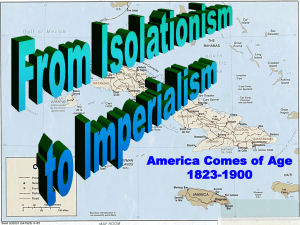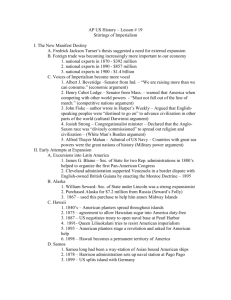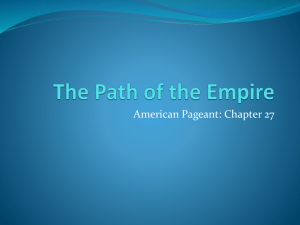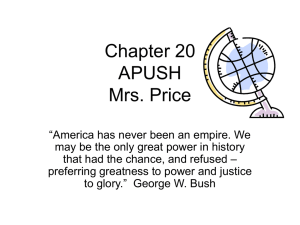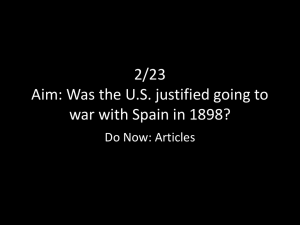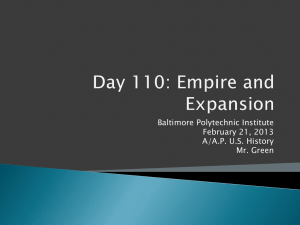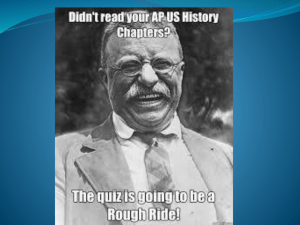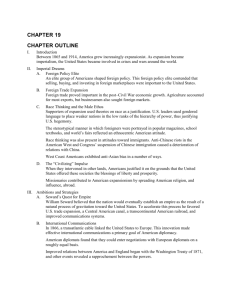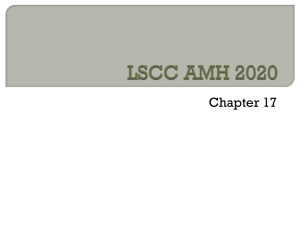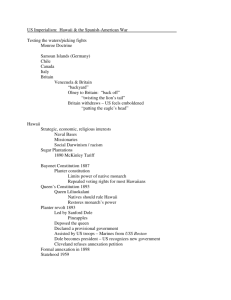File
advertisement
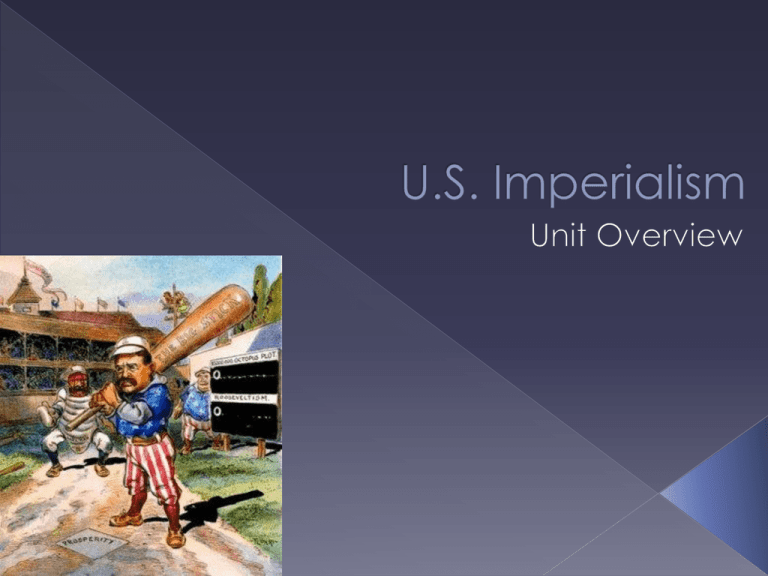
During the early Gilded Age, American interests largely remained confined within its own borders. However, the far reaching economic changes of this time period, coupled with the radically changing social structure, prompted America to compete abroad for international possessions and prestige. By 1900, the United States became an empire. Seward’s Folly (1867) › Purchase of Alaska American Nationalism › Shaped by sense of power—population growth, wealth, and production Interest in colonies and territories › Access to markets › “Yellow Press” –sensationalized stories of Pulitzer and Hearst › Ethnocentrism Belief in cultural superiority Social Darwinism Scramble for Africa—Berlin Conference (1884) Closing of the frontier Captain Alfred Thayer Mahan Control of the sea—new steel navy James G. Blaine “Big Sister” policy Pan-American Conference (1899) Samoan Islands German-American conflict British Guiana—Venezuelan border dispute GOLD! Monroe Doctrine—S.O.S. Richard Olney The Germans! › The Great Rapprochement American interests in Hawaii › Way station—whalers › Missionaries › Sugar! Americans capitalize on Japanese and Chinese labor › 1887 treat—Pearl Harbor American control › Japanese intervention › McKinley Tariff (1890) Queen Liliuokalani (lee-lee-oo-oh-kah-lah-nee) › Insisted on native control! › American troops Annexation? › Cleveland blocks Cuba=Spanish colony Tariff cripples sugar industry—hurts American agricultural interests Insurrectos—scorched earth policy › Stakes 50 million invested—100 million annual trade Panama Canal › Gas on the fire Valeriano “Butcher” Weyler Concentration camps “yellow journalism” de Lôme Letter Criticized McKinley for being soft USS Maine Explodes on 15 February 1898 260 sailor die—Spanish to blame (not really) McKinley declares war › Teller Amendment The Pacific Theater › The Philippines Commodore George Dewey 01 May 1898—obliterates Spanish fleet Spanish losses: 10 ships (out dated) and 400 men U.S. survives the engagement unscathed Manila captured 13 August 1898 › Hawaii Way station for troops in Philippines Fear of Japanese encroachment Annexation—7 July 1898 Full territorial status—1900 Cuba › Americans blockade Santiago Harbor Spanish have rickety fleet there › American realities Army—unorganized and outdated Rough Riders—American cavalry Teddy Roosevelt and Leonard Wood African Americans Aided by insurrectos Puerto Rico › Welcomed as liberators American losses › 400 from battle › 5,000 from disease and sickness The Treaty of Paris 1898 › Guam, Puerto Rico, and Philippines (20 million dollars) The question of the Philippines › Size and population? › Imperial interests of the Old World? › Acquisition after armistice—opposition? support? › Independence? › Contiguous territories? › White man’s burden?

